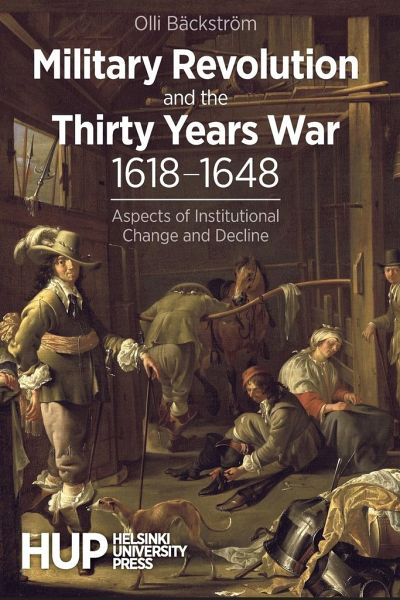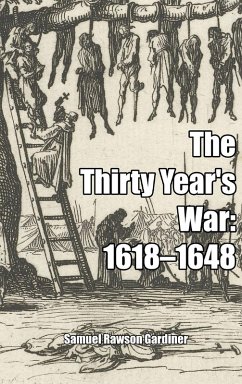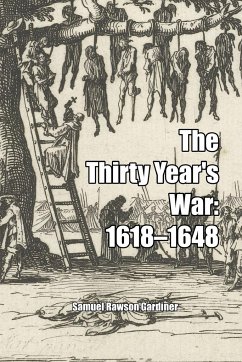
Military Revolution and the Thirty Years War 1618-1648
Aspects of Institutional Change and Decline
Versandkostenfrei!
Versandfertig in 1-2 Wochen
34,99 €
inkl. MwSt.

PAYBACK Punkte
17 °P sammeln!
Military Revolution and the Thirty Years War 1618-1648 investigates change and decline in military institutions during a period of protracted and destructive European warfare. Conceptual background is provided by the Military Revolution thesis, which argues that changes in military technology and tactics drove revolutionary transformation in the way states organised and waged war in the early modern era. This transformation of military institutions became evident during the long and destructive Thirty Years War in 1618-1648. The outcome of the Military Revolution was the centralised fiscal-mil...
Military Revolution and the Thirty Years War 1618-1648 investigates change and decline in military institutions during a period of protracted and destructive European warfare. Conceptual background is provided by the Military Revolution thesis, which argues that changes in military technology and tactics drove revolutionary transformation in the way states organised and waged war in the early modern era. This transformation of military institutions became evident during the long and destructive Thirty Years War in 1618-1648. The outcome of the Military Revolution was the centralised fiscal-military state that possessed a strong claim to the monopoly of violence within its territorial boundaries. The book examines how the Thirty Years War accelerated and even initiated transformation in four military institutions that defined land warfare: feudal cavalry services, militias, regular armies, and war commissariats. The regional scope of the investigation covers the Holy Roman Empire, France, Spain, Portugal, Sweden, Denmark, and the Dutch Republic. The book combines military-historical inquiry with ancillary sciences of sociology and economics. It argues that the Military Revolution of the Thirty Years War stimulated institutions capable of increased complexification and specialisation while curtailing those that were locked in stasis and immutability. The institutional legacy of the Thirty Years War was the emergence of complex military organisations that are characteristic to the modern society and its self-renewing social subsystems. Previous scholarship on the Military Revolution has concentrated on military technicalities and the wider process of early modern state formation. This book proposes an alternative way of viewing early modern military transformations from the perspectives of institutions and systems. System-analytical survey of change and decline in the military institutions of the Thirty Years War introduces qualifications to the Military Revolution theory and offers a novel way of conceptualising early modern military history. Olli Bäckström (PhD) holds the title of docent in General History at the University of Eastern Finland. His research focuses on early modern warfare and the Thirty Years War.












